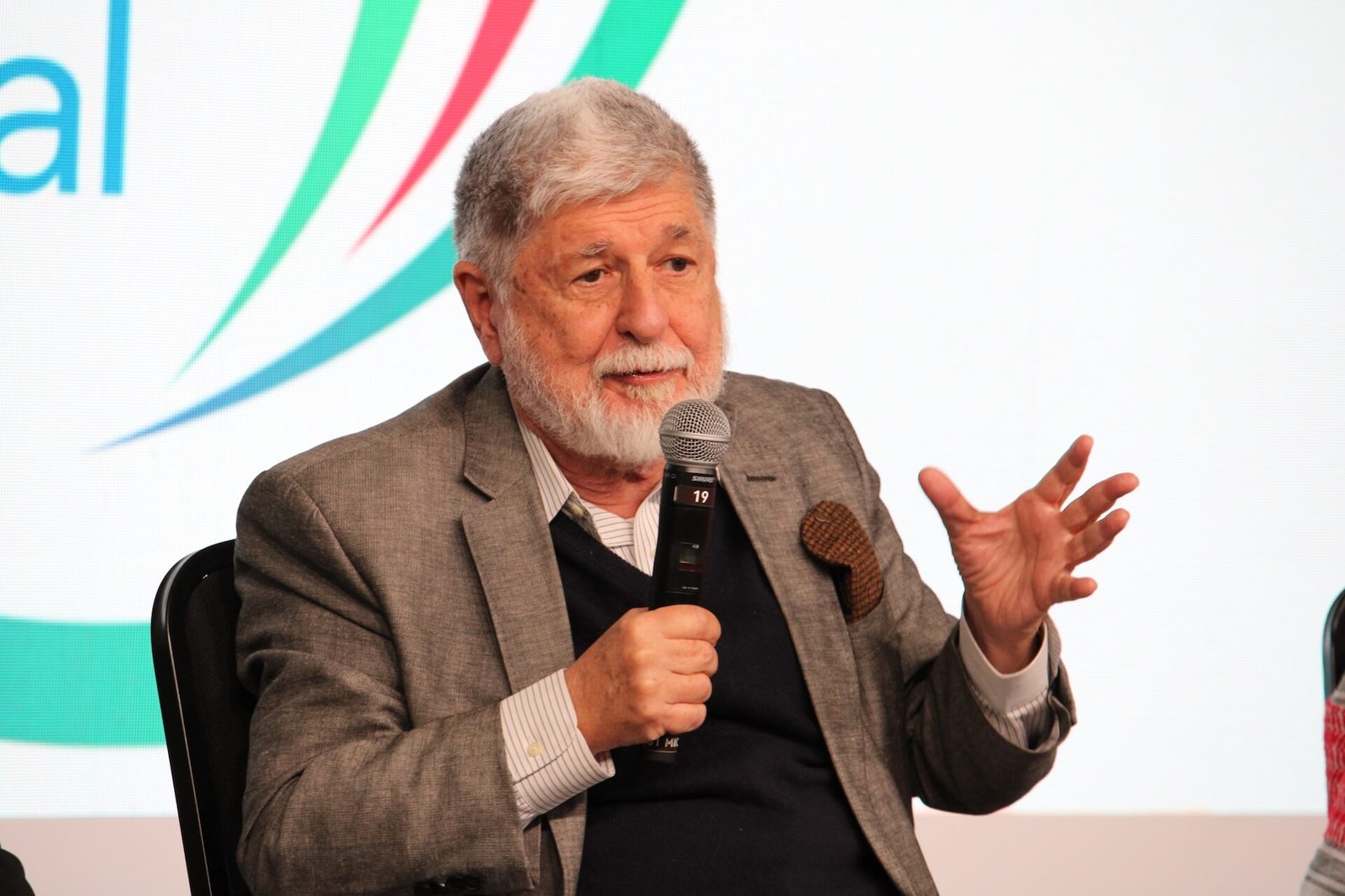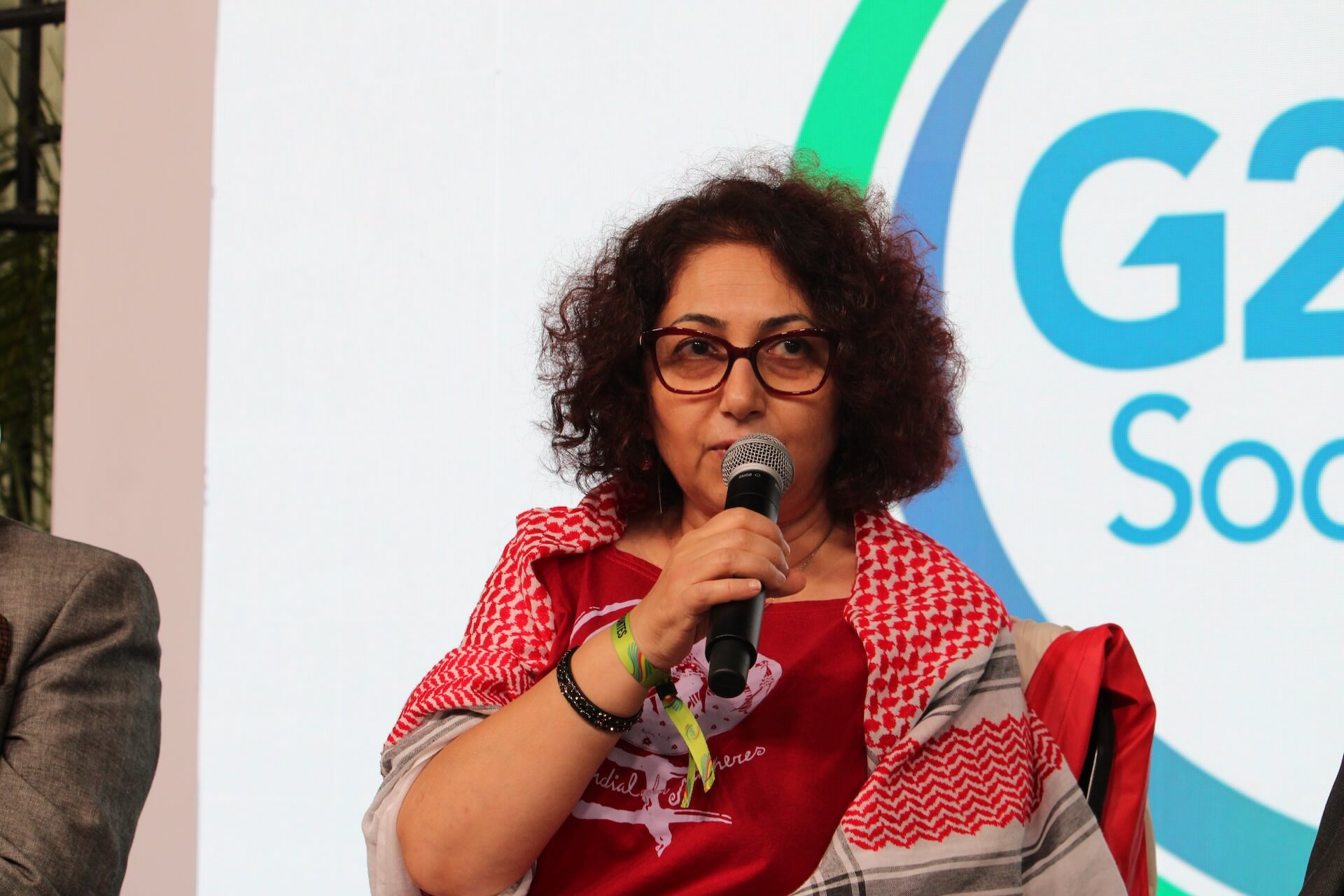Global Governance Reform: experts highlight plurality as the only possible path
Participants discussed social participation's role in strengthening alliances in the Global South.

It is time to overcome hegemonies and centralize governance based on the politics that emerge from the streets. The premise was one of the great consensuses of the plenary session dedicated to global governance on the second day of the G20 Social Summit. Celso Amorim, head of the Special Advisory to the President of the Republic; Yildiz Temürtürkan, Turkish representative for international relations; Ha Joon Chang, South Korean economist; and Antônio Lisboa, representing Brazilian civil society, were present on the stage.
The presence of social movements from Brasil and worldwide in the audience highlighted the power of social participation in envisioning new global governance systems.
"We must fight to change the world, but this change depends on a balance of power. The G20 Social comes close to this, with its diverse composition—women, civil society, black people, and native peoples. It is this plurality that can create a better world," said Celso Amorim, as reported by the official coverage of the G20 Social.
The special advisor to the Presidency of the Republic emphasized the importance of youth engagement, noting that the current moment holds revolutionary potential. "To the young people, persist because we are close to a revolution. Governance is about inspiring and suggesting, but it is essential that the rules are followed and that they promote justice and representativeness," he recommended.
Feminist perspectives on global governance

Yildiz Temürtürkan, international coordinator of the World March of Women (WMM), brought to the plenary a critical view of the patriarchal and capitalist system that structures global organizations. She stated that cooperation between peoples is essential to address problems such as climate change, pandemics, and territorial conflicts.
In an exclusive interview with Viração, the activist celebrated the approximations between the March and popular feminist movements in Brasil:
"Brazilian movements have an internationalized approach, developed throughout the processes of social forums and other regional or global articulations. We learned a lot about agroecology, extractivism, and community wisdom from these movements," he said.
Temurturkan also celebrated the historical role of Brazilian women leaders, such as Nalu Faria, the main leader of the World March of Women in Brasil.
“We have been working on building alliances for a long time. The Brazilian government, with its progressive strength, has been a crucial support, especially on issues such as Palestine and women's rights," she added.
The Strength of Civil Society in the Pursuit of Peace
Oleksandra Matviichuk, a Ukrainian lawyer and 2022 Nobel Peace Prize winner, gave a speech at the end of the plenary highlighting the importance of social mobilization in the fight for freedom and peace.
In an exclusive interview with the RENAJOC team in partnership with Viração Educomunicação, she emphasized the role of women in the global struggle for freedom: "The struggle for women's rights is crucial because it reflects the foundation of a just society. We women need to support other women in their communities and countries. Their struggles are our struggles," she reflected.
Abigail Pinheiro produced this text for collaborative coverage of the G20 Social. This content was produced during the educommunicative coverage of the G20 Social, carried out by "Viração Educomunicação" and by young participants of RENAJOC (National Network of Adolescent and Young Communicators). A production of "Viração Educomunicação" with support from the Friedrich Ebert Foundation in Brasil.
*Translated by PGET-UFSC